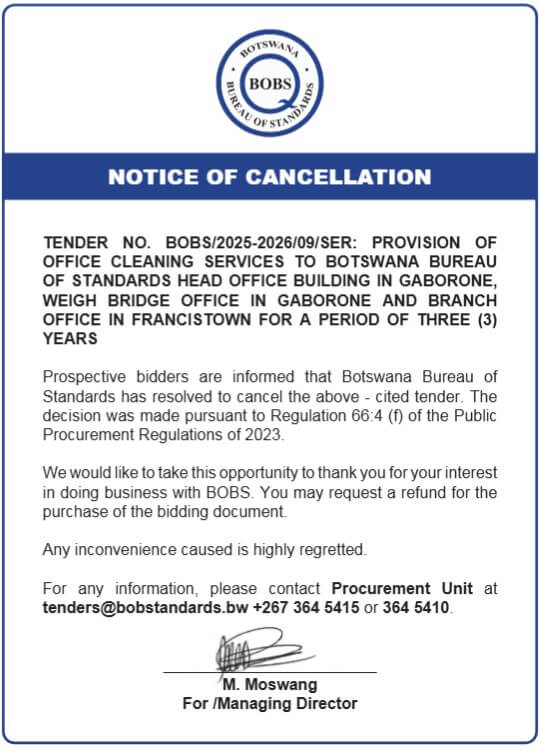Local washing powder cleaning up
If at first you don’t succeed, try, try and try again.
Tlotlo Prince Letshwiti and his business partner, Solomon Rapelang Moyo are living proof that this old English expression about never giving up can lead to good things.
Having joined forces in 2015, the pair saw idea after idea fizzle and burn until they finally hit the jackpot, cleaning up big time with their ‘home-grown’ washing powder, Cham.
“This is eight years of hard work, hustle and rejection behind us because this is not our first business to do. We have some love for manufacturing, and have tried with sugar and cooking oil manufacturing. They failed due to lack of funding and rejection from financial institutions. But we never gave up. There was a time we wanted to open a shop and it also failed. It was only last year when we applied for funding through the Youth Development Fund that we became successful,” reveals Letshwiti.
Unlike liquid dishwasher, which Batswana are seemingly able to produce at will, the washing powder industry is very much in its infancy locally.
“Every time we want to do something, we go into the internet to research and learn – that was the same thing with this washing powder. When we came with the idea, our first step was gathering information first, then we talked to certain guys from China who supplied us with machinery and they trained us virtually for manufacturing of the product. We also included a Chemical Engineer who helped us with chemical formulation and ingredients,” says Letshwiti.
The first batch finally hit the shelves in July, raking in P100, 000 in sales over the first two months alone.

With their factory in G West Industrial capable of producing 1, 200kg of washing powder a day, the future looks exceedingly bright for Cham.
Currently available in 1 and 2kg – which they sell to retailers for P20 and P30 each – there are plans to eventually introduce 500 and 250g to the production line.
At the moment, Cham washing powder is available in 15 Saverite retail outlets in the south of the country, as well as SquareMart and Thuso Wholesaler in Serowe.
Choppies’ two Mogoditshane-based outlets have also acquired some stock, with Letshwit and Moyo hopeful of supplying the giant chain countrywide.
Despite the positive early feedback for their BW-produced powder, the two businessmen are experienced enough not to get too carried away just yet.
“We were funded to the tune of P446, 000 but that money all went to procuring machinery and raw materials for our stock and that left us in some debts. So we have been doing a trial run which has produced remarkable results because Batswana are loving the product. Even though we are doing well in the market gaining traction, we have challenges of financials: manufacturing needs a lot of financial strength! You need working capital of six months and at least stock that can last for three to four months but for us we had none of that. We are just making ends meet and taking a lot from our pockets to keep running,” laments Letshwiti.
There are two key factors that help Cham stand out in a market where demand for such essentials is ever-present: local roots and high quality.
“We get 90 percent of our raw materials from Botash in Sowa, with the rest coming from South Africa. Even our competitor products also procure here in Botswana and go and produce that side (South Africa), so our proximity is working for us since we don’t struggle with this cross border tariffs,” adds the Cham co-owner, whose company currently employs six individuals.
“Our washing powder is premium quality. There is a mark in the industry of washing powder to gauge products. So most of the available products range between 12 and 15 but for us we scored 18 out of 20. That shows we are selling high quality washing powder.”
This has not gone unnoticed, with Cham gaining international attention.
“We managed to reach out to people we never thought we would reach. A few weeks back we secured a distributor in Zambia who wants to put the product in circulation in that country,” revealed Letshwiti, who thanked Local Enterprises Authority (LEA) and Botswana Investment and Trade Centre (BITC) for their continued support.















